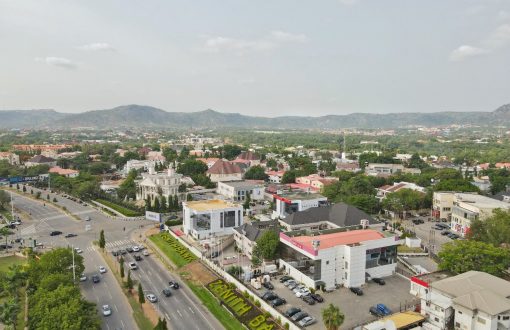Understanding AMAC Allocation vs. FCDA Allocation: Which Is Best to Avoid House Demolition

Owning a home is a significant investment, but in Nigeria’s Federal Capital Territory (FCT), land ownership requires careful navigation of legal allocations. Many property owners face the risk of demolition due to improper land allocations, often stemming from confusion between AMAC (Abuja Municipal Area Council) and FCDA (Federal Capital Development Authority) allocations. Understanding the differences between these two land allocation systems is crucial to securing your property and avoiding the devastating experience of house demolition.
What Is AMAC Allocation?
AMAC allocation refers to land allocations granted by the Abuja Municipal Area Council. As one of the six area councils in the FCT, AMAC is responsible for local governance, including the administration of land within its jurisdiction.
Characteristics of AMAC Allocation:
- Issued by AMAC Authorities – Land under AMAC allocation is provided by the council for residential, commercial, and agricultural use.
- Limited to Rural and Suburban Areas – These allocations are typically found in satellite towns and rural communities under AMAC jurisdiction.
- Recognized for Traditional Land Ownership – AMAC allocations often stem from indigenous landholders (chiefs, village heads, and communities) who allocate land to buyers with AMAC’s endorsement.
- Subject to FCDA Approval – Though AMAC provides land allocations, they must still align with FCDA’s master plan for proper legal recognition.
- More Affordable but Riskier – AMAC allocations are usually cheaper than FCDA allocations, but they carry higher risks due to uncertain legal standing and lack of comprehensive urban planning.
What Is FCDA Allocation?
FCDA allocation refers to land allocations granted directly by the Federal Capital Development Authority, the agency responsible for planning, development, and administration of land in Abuja.
Characteristics of FCDA Allocation:
- Issued by the Federal Government – FCDA allocations are given under the authority of the Nigerian government.
- Located Within the Abuja Master Plan – These allocations align with Abuja’s urban planning framework and infrastructure development.
- Backed by Proper Documentation – FCDA allocations come with valid Certificates of Occupancy (C of O), ensuring full legal ownership.
- Less Risk of Demolition – Land allocated by FCDA is legally recognized, reducing the chances of demolition.
- More Expensive but Secure – Because of their government backing and legal status, FCDA allocations are costlier than AMAC allocations.
Key Differences Between AMAC and FCDA Allocation
| Feature | AMAC Allocation | FCDA Allocation |
|---|---|---|
| Allocating Body | Abuja Municipal Area Council (AMAC) | Federal Capital Development Authority (FCDA) |
| Legal Recognition | Limited, requires FCDA approval | Fully recognized by the government |
| Location | Mostly satellite towns and rural areas | Within Abuja’s planned urban framework |
| Risk Level | High risk of demolition if not regularized | Low risk, legally secured |
| Documentation | May lack full legal backing | Comes with C of O and full government approval |
| Cost | More affordable | More expensive due to legal security |
Why Many Houses Get Demolished in Abuja
Many homeowners have suffered demolitions in Abuja due to improper land allocation. Some of the main reasons include:
- Lack of Proper Documentation – Land purchased through AMAC allocation without FCDA approval is deemed illegal.
- Violation of Abuja’s Master Plan – Structures built in unauthorized zones often face demolition.
- Purchase of Illegal Land – Some individuals unknowingly buy land from unauthorized sellers, leading to conflicts with FCDA.
- Failure to Obtain Building Approval – Even with a legal allocation, buildings without the necessary approvals from FCDA risk being demolished.
- Encroachment on Government Land – Properties built on land reserved for public infrastructure, such as roads or green areas, are often removed.
Which Allocation Is Best to Avoid House Demolition?

Given the risks associated with AMAC allocations, opting for FCDA allocation is the safest choice. Here’s why:
- Legal Security – FCDA allocations come with valid Certificates of Occupancy, ensuring government recognition.
- Compliance with the Abuja Master Plan – Properties on FCDA land are less likely to face demolition as they align with city planning regulations.
- Higher Investment Value – Although more expensive, FCDA land appreciates significantly over time due to its legal backing and infrastructure.
- Access to Infrastructure – FCDA allocations are often in areas with planned roads, electricity, and water supply, unlike many AMAC-allocated lands.
How to Verify Land Allocation Before Purchase
To avoid falling victim to demolition, it is essential to verify land allocations before purchase. Follow these steps:
- Check the Title Documents – Ensure the land has a Certificate of Occupancy or an approved allocation letter from FCDA.
- Confirm with FCDA – Visit the FCDA office to verify the authenticity of the allocation.
- Engage a Real Estate Lawyer – A legal expert can help verify the documents and confirm if the land is legally recognized.
- Request for Survey Plan and Building Approval – Ensure the land is properly surveyed and falls within an approved development zone.
- Avoid Third-Party Sales Without Verification – Some sellers claim to have legal ownership but lack proper documentation.
Conclusion
While AMAC allocation may seem like a cheaper option, it carries significant risks, including the possibility of demolition. FCDA allocation, though more expensive, offers legal security, better infrastructure access, and alignment with the Abuja Master Plan. To safeguard your investment and avoid potential losses, always prioritize FCDA allocation, verify documents thoroughly, and consult real estate professionals before making a land purchase in Abuja.


